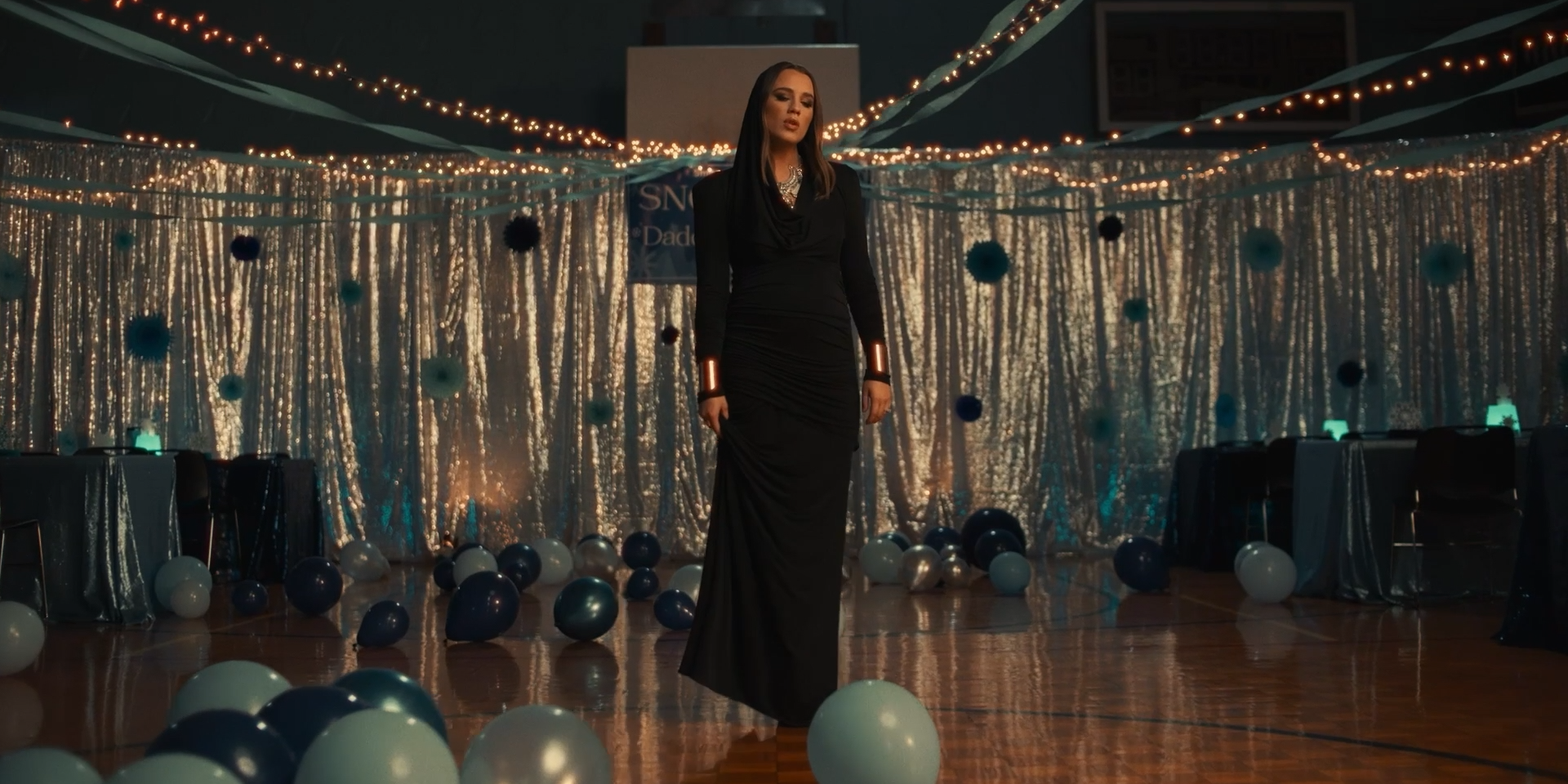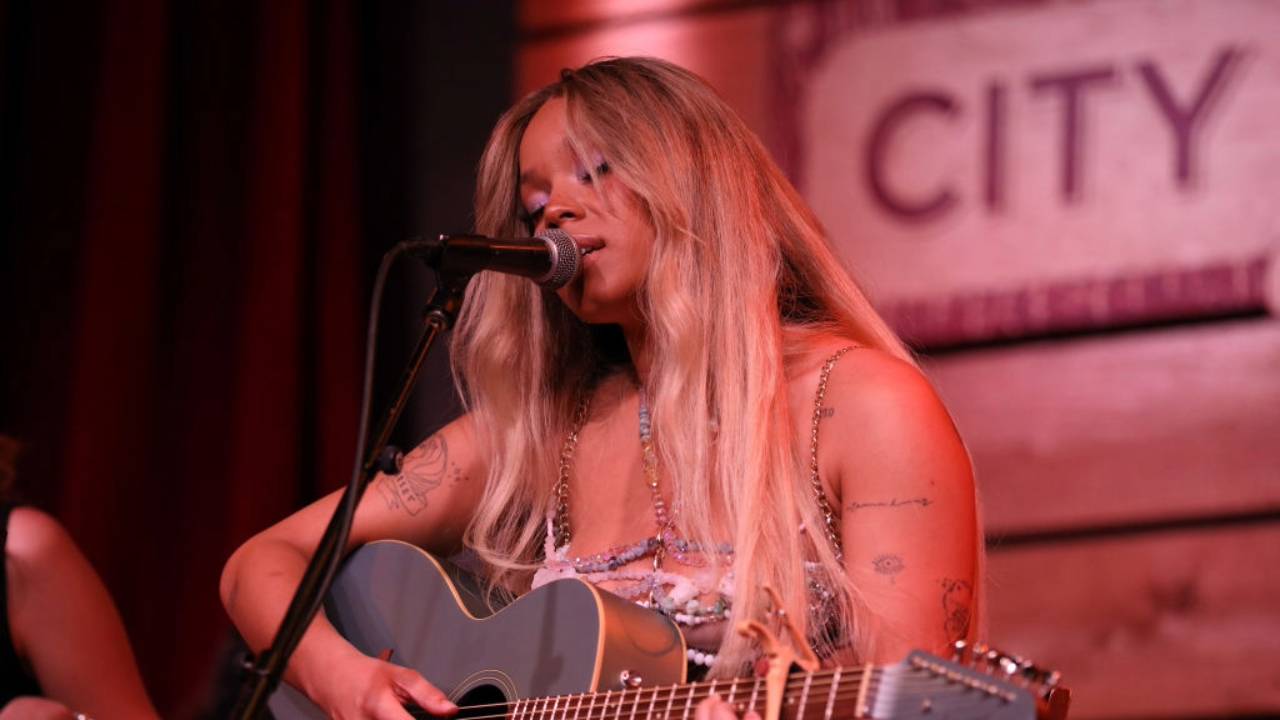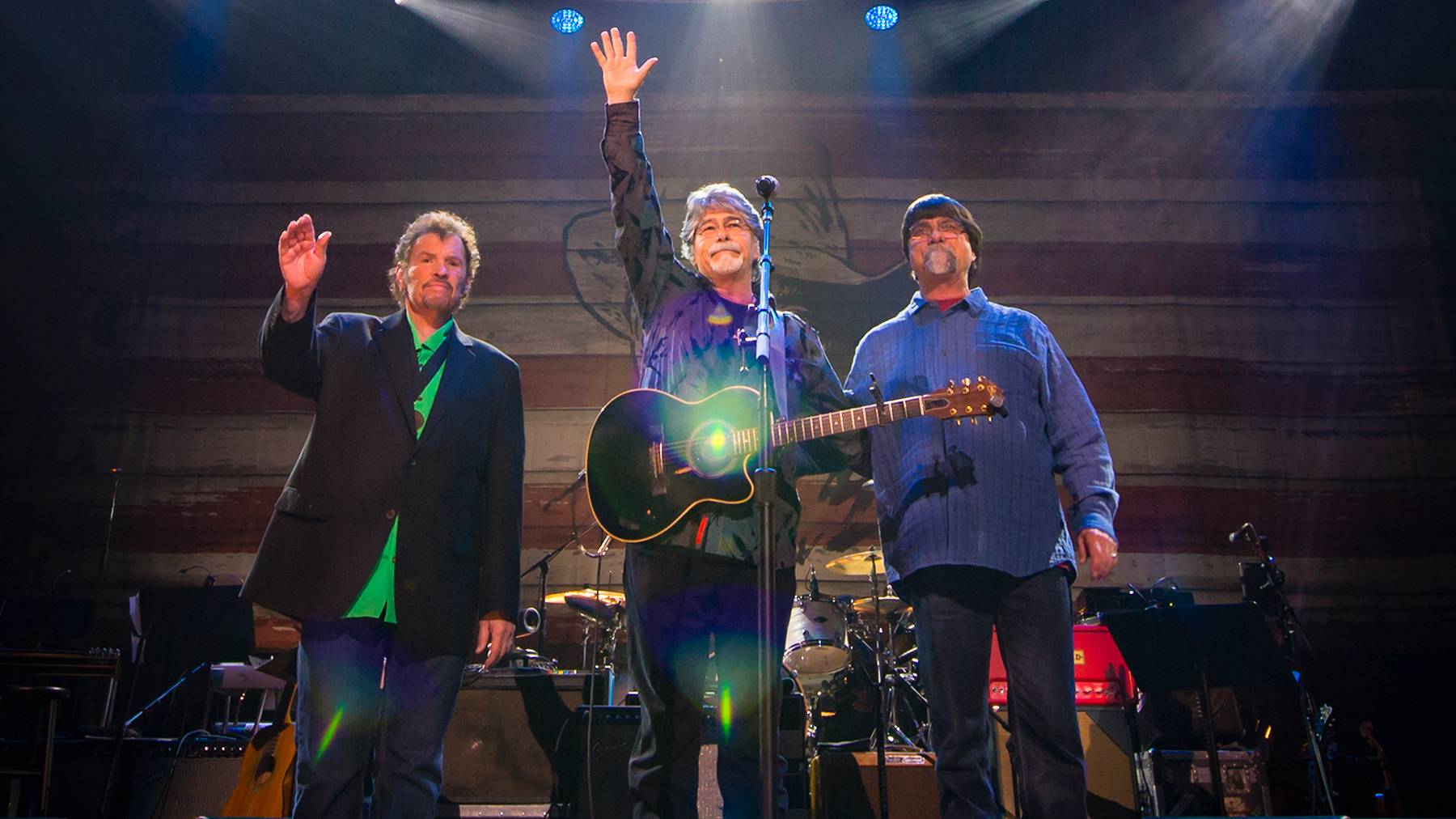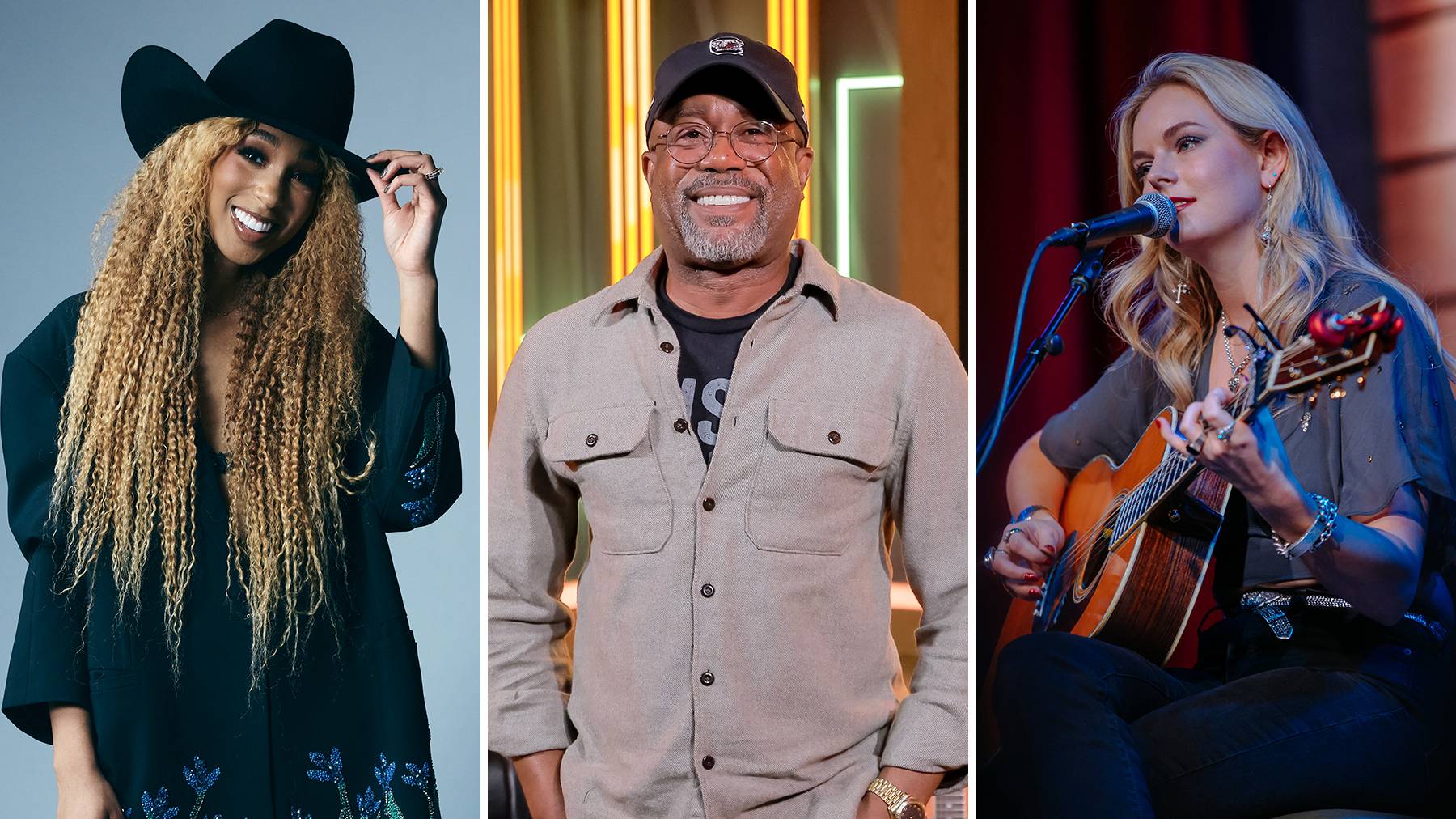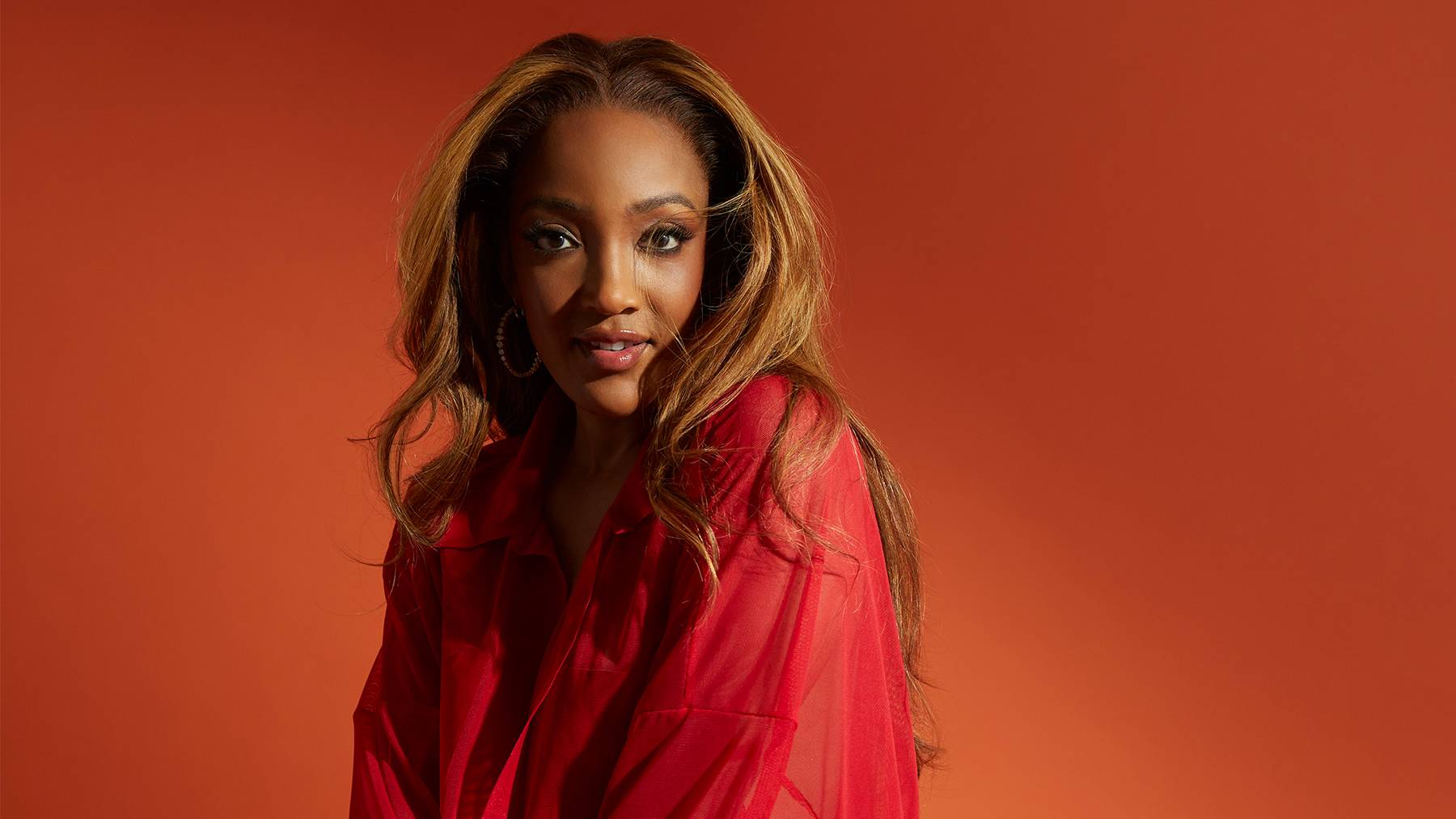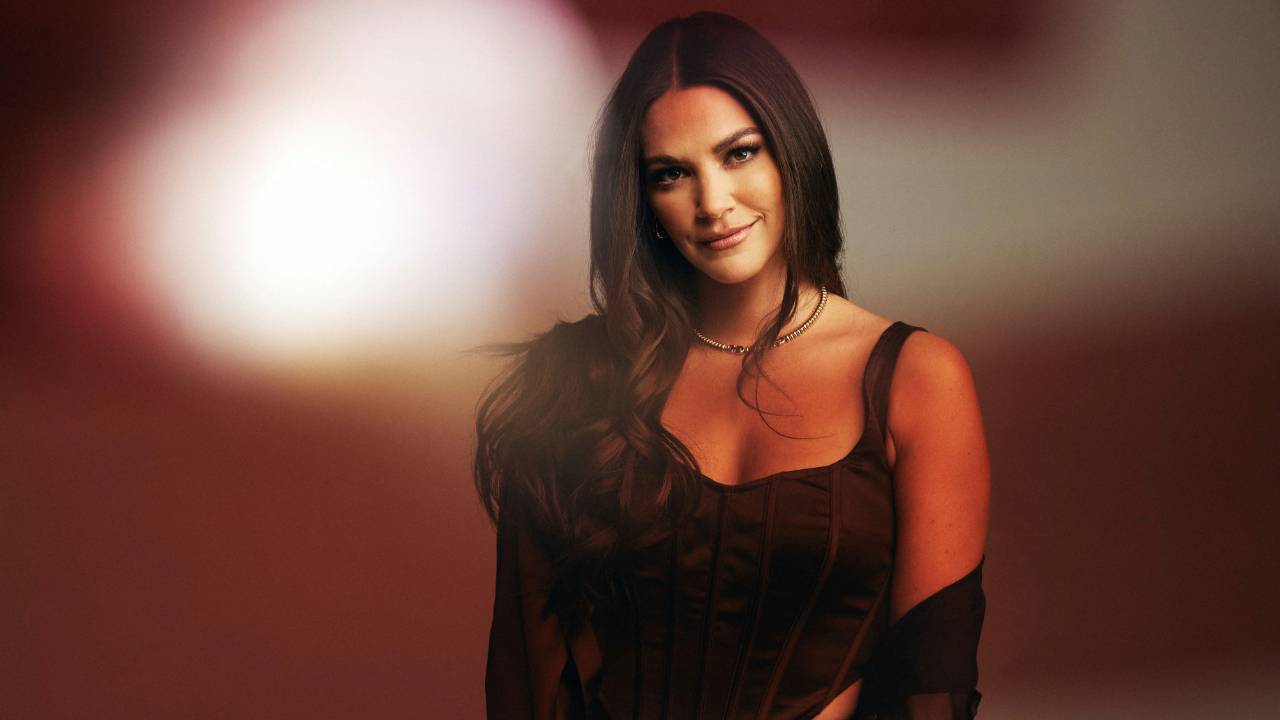Country Legends We Love: Wanda Jackson
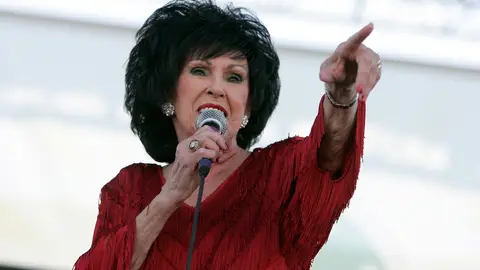
A member of the Rock and Roll Hall of Fame who maintained a country chart presence for two decades, Wanda Jackson is considered the raucous, straight-talking Queen of Rockabilly.
Wanda Lavonne Jackson was born October 20, 1937, in Maud, Oklahoma. Her father moved the family to Bakersfield, California, in 1941, then bought her a guitar two years later and taught her to play. The Jackson family returned to Oklahoma when Wanda was 12.
At 15, she won a talent show and received a prize of her own radio show on KLPR in Oklahoma City, an after-school gig that lasted throughout her high school years. Hank Thompson happened to hear her on the radio during this time, personally called the station, and invited her to perform with his Brazos Valley Boys. She worked with the band from 1954 through late 1955.
Through the recommendation of Billy Gray, one of Thompson’s sidemen, Jackson signed to Decca Records in 1954. Her duet with Gray -- “You Can’t Have My Love” -- was her first country single to chart and the only one from her Decca deal to do so. It went to No. 8, making her among the few women in that era with chart success in country music, though she was only 16.
She joined the Ozark Jubilee after her high school graduation. Intermittently from 1954 through late 1955, she toured with Elvis Presley. She credits Presley, whom she dated, with turning her toward a rockabilly sound and helping her find her “growl.” In 2010, she told CMT.com, “He was the one who pushed me and challenged me and made me promise to try it. He cared that much. I thought, ‘Without being a friend of his and without his concern for my career, I wouldn’t be here.’”
Like Presley, Jackson was not met with open arms at the Grand Ole Opry. Specifically, her shoulders caused a problem when Ernest Tubb told her, moments before she was about to make her debut in 1955, that she needed to cover them up. She reluctantly agreed to put on a fringe coat over her white dress as she performed through her tears. On the spot she made the decision not to come back -- a promise she kept for more than 50 years.
By 1956, she had signed to Capitol Records and recorded the half-country/half-rockabilly hit, “I Gotta Know.” Backing her on the single, which topped out at No. 15, were such musical luminaries as Buck Owens, Joe Maphis, Skeets McDonald and Speedy West. In the late 50s, she recorded the fiery “Fujiyama Mama.” It failed to chart in the U.S. but became a major hit in Japan and an enduring part of her repertoire.
A vibrant entertainer, Jackson was a performing star in Las Vegas during the late ‘50s and well into the ‘60s. She had the biggest chart hit of her career in 1961 with “In the Middle of a Heartache,” which she co-wrote. It rose to No. 6 country and No. 27 pop.
Beginning in 1967, she recorded as Wanda Jackson and the Party Timers. While she steadily occupied the charts throughout the ‘60s and into the mid-‘70s, her highest charting singles during this period were “Both Sides of the Line” (No. 21), the combative “My Big Iron Skillet” (No. 20), “A Woman Lives for Love” (No. 17) and “Fancy Satin Pillows” (No. 13).
Between 1960 and 1962, five of Jackson’s singles made the pop charts, including “Let’s Have a Party,” “Right or Wrong” (which she wrote) and “In the Middle of a Heartache.” Her 1964 album, Two Sides of Wanda, conveyed her musical versatility and received a Grammy nomination in the Country & Western category. Six years later, she earned another Grammy nomination for “A Woman Lives for Love.”
Starting in 1971, Jackson declared that she was a born-again Christian and would no longer record and perform secular material. But by the 1980s she was again embracing her country and rockabilly roots and touring Europe. She also became the grande dame to such admirers as Cyndi Lauper, Rosanne Cash, Pam Tillis and Rosie Flores. She was recognized as one of CMT's Greatest Women of Country Music in 2002 and received a 2005 National Heritage Fellowship Award from the National Endowment for the Arts.
In the twilight of her career she released these notable albums: Heart Trouble (2003), which included guest performances by Elvis Costello, the Cramps and Flores; The Party Ain’t Over (2011), produced by Jack White; and Unfinished Business (2012), produced by Justin Townes Earle, and her first album in 39 years to make Billboard’s Hot Country Albums chart.
Asked in 2012 how country music influences her sound, she told CMT.com, "Well, it factors into my sound because I am country! Rockabilly and country are kissin’ cousins. If you like one, you normally like the other one. It just kind of fits. That’s where the term rockabilly came from. If you played country music, played the guitar, back in the ’50s, you were called a hillbilly singer."
She added, "I never did like that — 'hillbilly' — but that’s what everybody was called. So we got looped into this other thing in music, rock ’n’ roll, I guess. And we became rockabilly because we still had the guitar on. But it influences everything I do."
In 2009, Jackson was inducted into the Rock and Roll Hall of Fame in the “early influences” category, then accepted a Lifetime Achievement Award in performance from the Americana Music Association in 2010. In 2011, Jackson performed on The Late Show With David Letterman and Conan, at Bonnaroo Music Festival and Newport Folk Festival, and on a number of tour dates with Adele, who hand-picked Jackson to open the shows.
Three years later, Jackson was inducted into the Oklahoma Music Hall of Fame. BMG published her memoir, Every Night Is Saturday Night: A Country Girl’s Journey to the Rock & Roll Hall of Fame, in 2017.
Jackson’s husband and constant companion of 56 years, Wendell Goodman, died during a tour in 2017. Although she continued to work for a time, she announced her retirement from touring in 2019 and revealed that she had suffered a stroke the year before.
She told CMT.com in 2019, “I always wanted to retire or let go of my career when I felt like I was at the top. And for me, right now, has been the top. For the last eight to 10 years, I’ve had nothing but big crowds, many of them were sold out, standing-room-only, and my audiences have been so great. They’re mostly young people, and they have so much enthusiasm, and they love our ‘50s rockabilly songs. It’s been a lot of fun for me to sing for people like that.”
